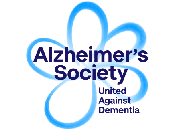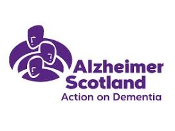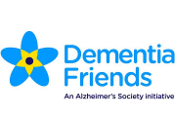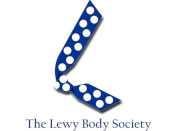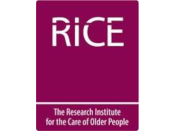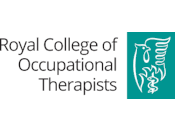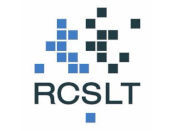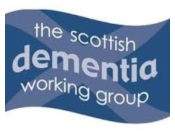
Living with dementia: sleep and night-time disturbances
Living with dementia: sleep and night-time disturbances
This factsheet is available for sponsorship, email marketing@dlf.org.uk
Sponsorship has no influence on our impartial content
Factsheet contents
- Introduction
- Night-time disorientation
- Personal alarms and fall detectors
- Telephones
- Alarm clocks
- Bed mobility
- Toileting and continence
- Sensors and alarms
- Assessing your needs
- Provision of equipment
- Funding sources for care
- For further advice from us
- Contributors
- Useful organisations and resources
- References and further reading
Introduction
Some people with dementia can find it hard to sleep at night. They may get up repeatedly during the night, get dressed, walk about or try to leave the house. There may be many reasons why a person with dementia is not sleeping well, including continence issues or disruption to their body clock due to dementia (Alzheimer’s Society, 2018).
The use of equipment or technology can help a person with dementia and their carer to get a better night’s sleep and improve their safety at night.
Sundowning
Sundowning or 'late day confusion' can occur in the mid to late stages of dementia. People experiencing sundowning may be more agitated, aggressive or confused in the late afternoon and evening (Alzheimer’s Society, 2018). Disturbed or poor sleep may contribute to this. To reduce the symptoms of sundowning you can:
- Promote a calming routine to the day
- Use blackout blinds at night
- Increase activity levels during the day
- Avoid caffeine
- Encourage lighter meals in the evening
- Avoid stressful and highly stimulating situations
- Provide reassurance and familiarity
- Track their activities and behaviour - use this to look for triggers that seem to make their symptoms worse.
Night-time disorientation
Night lights
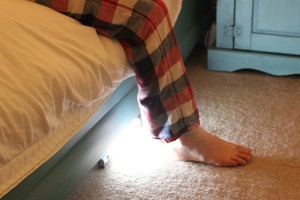 Night-time disorientation and/or the risk of falling when getting up can be reduced with the use of night lights.
Night-time disorientation and/or the risk of falling when getting up can be reduced with the use of night lights.
If the person needs to get up to use the bathroom at night for example, there’s often a reluctance to turn on the main lighting as it can be 'dazzling'. A plug-in night light can provide lighting at a low level, without being too bright and disturbing sleep.
Automatic night lights are designed to come on when required - some turn on when movement is detected by a motion sensor, others will turn off automatically during daylight hours and come back on again at dusk or at a pre-set time. They can be placed in hallways and bathrooms and can aid a person's navigation without the need to remember where the light switches are. This can leave the person free to concentrate on walking from room to room and thus avoiding potential obstacles.
Prompting devices
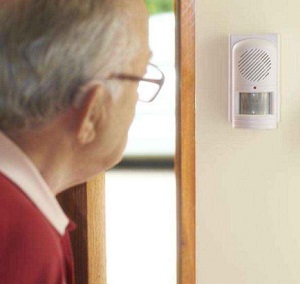 Prompting devices can assist people with dementia who become confused or disorientated at night. They can specifically help people who have a tendency to walk about or to leave the house during the night.
Prompting devices can assist people with dementia who become confused or disorientated at night. They can specifically help people who have a tendency to walk about or to leave the house during the night.
A prompting device works as follows:
- The device is attached to a strategic place in the home, such as the bedroom door or front door
- As person approaches the door a sensor sets off a pre-recorded voice message (messages can be recorded in a voice familiar to the individual, for example by a family member or carer)
- The message reminds the person that it is night-time and that they need to go back to bed
- This prompt can then help the person to get his/her bearings and return to their bedroom
- Some prompts can be linked to a telecare system if a carer needs to be alerted on night-time activity.
Blackout blinds or curtains
Blackout blinds or curtains darken the room and can remind a person with dementia that it is night-time and they don't need to get up. They also cut out the morning light, which can be beneficial during the summer months, and can help prevent early wakening.
Clocks which prompt day or night
 Clocks with prompts can help people with dementia who experience disorientation between day and night-time. Some clocks show the day of the week and/or date, some use symbols to denote night or day while others display the day of the week along with the period of day - e.g. morning, afternoon, evening or night.
Clocks with prompts can help people with dementia who experience disorientation between day and night-time. Some clocks show the day of the week and/or date, some use symbols to denote night or day while others display the day of the week along with the period of day - e.g. morning, afternoon, evening or night.
These clocks can be analogue or digital, but it is helpful if the format presented is familiar to the user. Also the amount of content on the clock's display should be relevant to the requirements of the person with dementia - very concise, key information may be easier to process. Some clocks will offer a choice of display screens.
Personal alarms and falls detectors
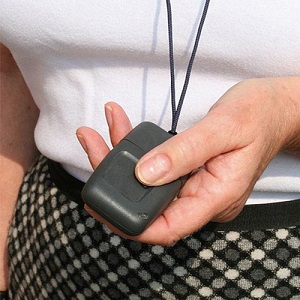 Some people with dementia may experience falls, so a personal alarm with a falls detector is a useful device to have.
Some people with dementia may experience falls, so a personal alarm with a falls detector is a useful device to have.
They typically comprise of a call safety button which is worn around the neck or wrist. In the event of a fall or an emergency, pressing the emergency button will activate the device which in turn automatically alerts a family member or carer that help is required.
Some alarms have an additional falls detector built in. If the wearer should fall, the impact causes the alarm to go off automatically - again alerting a family member or carer. Having the added function of the falls detector is a useful addition, especially if a person with dementia is likely to forget to press the alarm button.
Alternatively, for shorter distances a simple pager alarm may be sufficient. When the alarm goes off, it alerts family members or a carer who are nearby that the wearer requires assistance.
Telephones
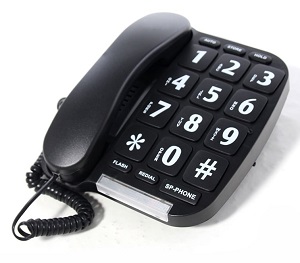 Having a large buttoned dementia friendly phone next to the bed in case of emergencies can be reassuring for both you and your family.
Having a large buttoned dementia friendly phone next to the bed in case of emergencies can be reassuring for both you and your family.
The large buttons on the phone's keypad can make it easier to use and most models offer one-touch speed dial buttons where family member's phone numbers can be stored in case of emergencies. Some dementia friendly phones have photo or picture memory buttons - the person using it can then identify the picture of the person they want to contact and press the button in order to make a call.
Telephones are available with an amplified ringer, visual flashing ringer and/or amplified speech which may help if the user has hearing loss. Many phones are compatible with hearing aids.
Dementia friendly mobile or smart phone
In case of an emergency in the night, it may be useful to have a dementia friendly mobile or smartphone next to your bed.
Most models have a clear colour display, large back-lit speed dial buttons and a docking station for charging. Some models enable you to add pictures of family members or carers on the relevant speed dial buttons. Some models incorporate a GPS tracking system as well as amplification.
Alarm clocks
Talking alarm clock
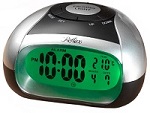 A talking alarm clock speaks the time in a human voice. Some people with dementia may have difficulty recognising the traditional alarm clock bell and so replacing the bell with a human voice announcement may be a solution.
A talking alarm clock speaks the time in a human voice. Some people with dementia may have difficulty recognising the traditional alarm clock bell and so replacing the bell with a human voice announcement may be a solution.
Vibrating alarm
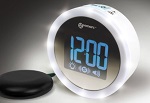 If you are hard of hearing or tend not to react to the sound of an alarm clock bell, a vibrating alarm may be the answer. It is placed under the pillow and instead of ringing it vibrates, allowing the user to 'feel' it going off rather than hearing an alarm ringer.
If you are hard of hearing or tend not to react to the sound of an alarm clock bell, a vibrating alarm may be the answer. It is placed under the pillow and instead of ringing it vibrates, allowing the user to 'feel' it going off rather than hearing an alarm ringer.
Bed mobility
NB - If you have dementia and are having difficulty getting in and out of bed, it is important to ask for an assessment from an occupational therapist before purchasing any of the following. This is to ensure your safety and the correct prescription of equipment. You can request an assessment directly with your local social and healthcare team or local NHS.
Leg lifter
Some people may struggle to get their legs into bed. The leg lifter is an inflatable cushion designed to assist with this.
It is unlikely that a person with dementia would be able to use a leg lifter independently and so the assistance of a carer or family member may be required to operate the controls.
Pillow lift
A pillow lifter is designed to help the user sit up in bed by raising the upper part of the body. It fits under an existing pillow and is electrically operated. A carer or family may be required to operate the controls, particularly for a person in the later stages of dementia.
Mattress variator or inclinator
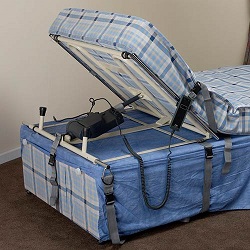 Some people have trouble getting in and out of bed. If this is an issue for you, the mattress variator can provide a solution.
Some people have trouble getting in and out of bed. If this is an issue for you, the mattress variator can provide a solution.
Mattress variators or inclinators are electrically or battery powered sit up devices. They are positioned under the head-end of the mattress. They raise the mattress to form a backrest, assisting the user to sit up and get out of bed. They may not be suitable for all types of beds, such as those with orthopaedic mattresses or slatted bases for example.
Assistance from a carer or family member may be required to use the controls on the mattress variator.
Bed levers
A bed lever can assist in getting a person from a lying to a sitting position in bed and from sitting to standing position. It fits under the mattress and comes with straps.
Models are available for slatted, divan and electric profiling beds. Some models are suitable for double beds and are designed to fit under the mattress. You need to ensure that you have the correct model for your type of bed.
A family member or carer should regularly check that the bed lever is fitted securely under the mattress and has not become dislodged.
Careful assessment from an occupational therapist is required before using a bed lever as they may not be suitable if the person who will be using it is experiencing significant memory problems or has dementia and lives alone.
Toileting and continence
Commodes
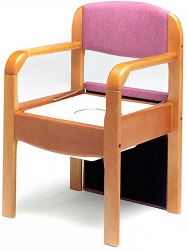 Some people with dementia may find that they are more unsteady on their feet at night and that walking from the bed to the toilet is a daunting task. It is important to try to maintain independence in continence (Alison Bardsley, 2014) and for this reason, a commode positioned next to the bed can be of help.
Some people with dementia may find that they are more unsteady on their feet at night and that walking from the bed to the toilet is a daunting task. It is important to try to maintain independence in continence (Alison Bardsley, 2014) and for this reason, a commode positioned next to the bed can be of help.
If you do decide to use a commode, you may want to position it so that you can get on and off it easily from your bed. Ensure a family member or carer is available to empty the commode in the morning, especially if you have difficulty with carrying items.
Waterproof covers
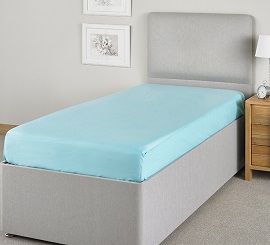 Night-time continence problems can increase as dementia progresses. It is important that this is managed with the correct products, as unresolved continence issues causes stress to the individual and carer. Waterproof covers can help to alleviate continence problems.
Night-time continence problems can increase as dementia progresses. It is important that this is managed with the correct products, as unresolved continence issues causes stress to the individual and carer. Waterproof covers can help to alleviate continence problems.
They are designed to fit over a duvet, pillow or mattress. Using a waterproof cover can reduce the worry of soiled bedding and minimises washing as they can be wiped clean.
Disposable and washable bed protector pads
Disposable and reusable pads are placed over the mattress, protecting the mattress by absorbing liquid and keeping the user dry.
Continence or bed wetting alarms
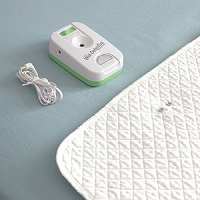 Staying continent during the night-time can be difficult for some people with dementia, especially for those in the later stages of the condition. A continence alarm consists of a sheet which is placed on the bed.
Staying continent during the night-time can be difficult for some people with dementia, especially for those in the later stages of the condition. A continence alarm consists of a sheet which is placed on the bed.
A sensor inside the sheet detects moisture and activates an alarm, alerting a family member or carer that the user may need assistance with changing their bedding or clothing. The alarm can be set on silent mode to limit disturbance.
Further reading
More information can be found in DLF's Toileting and continence fact sheet.
Dementia UK's fact sheet offers further practical advice on managing continence.
Sensors and alarms
Motion sensors
For those with dementia who may become disorientated and walk about during the night, a motion sensor can offer reassurance.
The sensor detects motion, raising an alert if you should enter a specific room or area of the home. Some models operate using an invisible beam which, if broken, sends an alert to a carer or family member. Others operate with Wi-Fi.
Window/door sensor with alarm
 Door or window sensors with alarms can be useful, if due to dementia, there is a tendency to walk about during the night and there is a risk of exiting the home through a door or window.
Door or window sensors with alarms can be useful, if due to dementia, there is a tendency to walk about during the night and there is a risk of exiting the home through a door or window.
The sensor is placed on the door or window and is activated when opened. The alarm sounds, alerting a carer or family member who can come to assist you and guide you safely back to bed.
Movement sensor for under the mattress
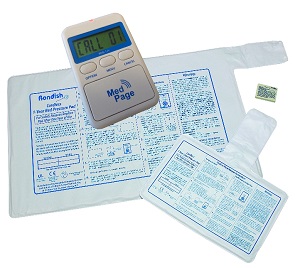 The bed pressure mat can alert a carer or family member to the fact that you are out of bed and moving around during the night. This is helpful for those with dementia who are at risk of falls or walking about. The mattress sensor works as follows:
The bed pressure mat can alert a carer or family member to the fact that you are out of bed and moving around during the night. This is helpful for those with dementia who are at risk of falls or walking about. The mattress sensor works as follows:
- A pad is placed under the bottom sheet - this is linked to an alarm
- As you move your weight on it to get out of bed, the alarm sounds, alerting your carer who can then come and assist you
A recorded message reminding you to return to bed is incorporated in some models.
Bed occupancy sensor
A bed occupancy sensor can help people with dementia who are at risk of falls or night-time walking about. The sensor is a pad which is placed under the mattress. It detects when you’ve left the bed and starts a timer; if you don't get back into your bed within a pre-set time then your telecare system will trigger an alarm to your help centre.
Floor pressure mat
Alternatively sensors in a floor pressure mat detect movement when it's stepped on. A notification is sent to family members or a carer alerting them that you are up and about.
Cold alarm
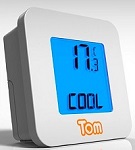 If you tend not to notice that your room has become too cold, the cold alarm provides a visual or audible early warning before the temperature in a room falls to a dangerously low level and can act as a reminder that you need to turn the heating on.
If you tend not to notice that your room has become too cold, the cold alarm provides a visual or audible early warning before the temperature in a room falls to a dangerously low level and can act as a reminder that you need to turn the heating on.
Further reading
More information about sensors and alarms can be found in DLF's fact sheet Living with dementia: home safety and security.
Assessing your needs
A range of conditions may cause forgetfulness, anxiety, low mood and confusion, however they may also be early signs of dementia. A visit to your GP would be recommended to rule out other causes and allow for a better understanding of the illness and how it may progress, as well as strategies on how to manage the symptoms.
The assessment for dementia is a process that takes time and goes through various stages and tests. These may include a physical examination, a blood test and interviewing both the person and their concerned friend/relative separately. This may lead to a referral to a local memory service or clinic. The GP, Community Psychiatric Nurse or a member of the memory clinic staff will be able to advise on symptoms, how the disease may develop and provide information on appropriate treatment. They will also be able to advise you on what support there is available locally. Prior to an appointment it can be useful to keep a journal or diary of any tasks that have become more difficult or concerns that you may have.
The GP can refer you for a Health and Social Care Needs Assessment, or you can contact your local authority Adult Social Care Department and make a self-referral, or have a friend or relative do it for you. By law anyone who appears to need care and support can request an assessment regardless of their income or savings.
The assessment will focus on your needs, how they impact on your well-being and on what you want to achieve and will aim to identify any difficulties you may have in caring for yourself. An Occupational Therapist will carry out the assessment and will be able to advise on strategies to help reduce any identified risks and recommend any equipment that may be helpful to maintain independence. If someone else is helping you they are also entitled to a carers assessment, which will help to identify what help and support they may need.
There are a number of charitable organisations listed below that can provide help and support for the person with dementia and their relatives and carers.
Provision of equipment
Many simple assistive technology devices mentioned in this fact sheet can be privately purchased. Others can be provided by local authorities or the NHS to meet an assessed need; you or a family member can request a home assessment from an occupational therapist
Permanent loan: Local Authority and health provision
If you require disability equipment, telecare or adaptations to your home then your local authority may be able to help. They can supply equipment or minor adaptations that cost under £1,000, free of charge. (Department of Health 2014, section 2.9). In Scotland, Local Authorities make their own arrangements for provision of minor adaptations and details can be accessed via your Council's website.
Some equipment such as pressure relieving cushions, mattresses, some mobility aids and wheelchairs are supplied by your local Health Authority. A referral to the District Nurse or Wheelchair Service for these items can be made via your GP or other health professionals including a Community Occupational Therapist or Physiotherapist.
Disabled Facilities Grant (DFG)
Should you need adaptations to your home that cost more than £1,000 that will allow you to continue to live there, you may be eligible for a Disabled Facilities Grant (DFG). An Occupational Therapist will complete an assessment and if the work is deemed necessary to meet your needs and is reasonable and practical, then they will arrange for a financial assessment to be undertaken.
If you meet the criteria for funding, the Occupational Therapist will make recommendations for the adaptations required.
Private purchase
If you do not wish to use local authority services, there are independent Occupational Therapists who can assess your needs and help to advise or assist you in buying any equipment or arrange adaptations to your home that you may require.
You can also purchase equipment privately, but it is recommended that you compare different options first. There may be an equipment demonstration centre near you where you can look at and try out equipment before purchasing, as well as receiving impartial advice.
Charity and Grant funding
Charitable trusts may sometimes provide equipment or give a grant for equipment purchase.
Turn2Us is a national charity that helps people who are in financial difficulty find grants for the provision of equipment, and Community Care gives a list of charitable organisations that give grants.
Charities tend to give awards in accordance with a predetermined criterion, so it is important that you carefully select the organisations that apply to your condition. There are also some workplace charities that will provide support for ex-employees. If you are or have served in the Armed Forces, or are a dependent or carer of a person who has served, The Royal British Legion may be able to provide you with support for specialist dementia care or grants for equipment and adaptations to your home, or small crisis grants to meet unexpected expenses.
Funding sources for care
If you need support with daily tasks that may include help from a carer, the delivery of meals or residential care then your local authority may help with the cost. How much support you are entitled to will depend on your income and savings and what your care needs are. A financial assessment of your means will be carried out to establish how much support you are entitled to.
You may be eligible for further financial support such as Attendance Allowance or Personal Independence Payment (PIP) and if you have a person who cares for you for 20 hours or more a week, they may be eligible for some financial support.
If you live alone you can apply to your local authority for a 25% reduction on your Council Tax bill, or if you live with someone else then they may be eligible for a 25% reduction on the Council Tax bill. As your condition progresses, they may be eligible for a further 25% reduction.
Private carers and residential care
If you are looking for a carer or are considering residential care, then you should ensure that the staff are trained in dementia care and are able to give the specialist help you need. A residential home should be designed to provide the best possible environment for you. There are a number of organisations that can help you with choosing a suitable home, including:
- Elderly Accommodation Council
- Housing Care.org
- DementiaUK
- Relatives and Residents Association
- Paying for Care
Care Home ratings/selector
Inspection reports and care home ratings can be found via:
- England – Care Quality Commission
- Scotland – Care Inspectorate
- Wales – Care Inspectorate Wales
- Northern Ireland – Regulation and Quality Improvement Authority
Charity and Grant funding
Charitable trusts may sometimes provide funding for care, nursing or residential respite, permanent care or a befriending service. Charities tend to give awards in accordance with a predetermined criterion, so it is important that you carefully select the organisations that apply to your condition. There are also some workplace charities that will provide support for ex-employees. If you are or have served in the Armed Forces, or are a dependent or carer of a person who has served, The Royal British Legion may be able to provide you with support for specialist dementia care or small crisis grants to meet unexpected expenses.
Further information relating to grants is available from:
- Community Care – a list of charities providing grants.
- Turn2us - Turn2us is a national charity that helps people in financial hardship gain access to welfare benefits, charitable grants and support services.
- Housing grants information from Disability Rights UK - led by people with diverse experiences of disability and health conditions, from different communities.
- Disability Grants - grants for disabled adults.
- My grants - accessibility grants for disabled and older people.
- Grants for individuals - this website is run by the Directory of Social Change and lets subscribers search for grants. It is intended for organisations searching for funding on behalf of individuals.
- The Money Advice Service - Charitable grants and major and minor adaptations.
VAT relief
If you have a diagnosed long-term condition, you may be able to claim VAT relief on purchases relating to the condition. The company supplying the equipment should be able to advise you, or there is general information on VAT relief on the GOV.UK website.
For further advice from us
For clear, practical advice and information on products and suppliers of daily living equipment, please have a look at our Living made easy website.
If you would like further advice related to choosing equipment for everyday living you could try relevant sections of AskSARA, our free online guided advice tool. AskSARA will ask you questions about yourself and your environment and then offer relevant advice, product suggestions and supplier details.
You can contact the DLF Helpline, which is open Monday to Friday from 10am to 4pm. Tel: 0300 999 0004 (calls charged at your standard land line rate even if you are phoning from a mobile).
Alternatively, you may wish to contact us via email: info@dlf.org.uk or by letter: DLF, 34 Chatfield Road, Wandsworth, London SW11 3SE.
To help us give you a concise and informative reply, please provide us with as much detail as possible, including information on the difficulties you are having and any solutions you have considered, such as equipment ideas.
Another source of advice is a disabled or independent living centre where you would have the opportunity to try out a range of equipment. There are several of these around the country where you can go for impartial advice. Your local authority will also be able to give you details of centres in your area.
Contributors
Roisin Hodgson
 Roisin Hodgson qualified as an occupational therapist in 1993 and has worked extensively in hospitals and within the community. Now working as a private occupational therapist, Roisin has an interest in occupational therapy approaches to anxiety, panic and post traumatic stress disorder. Many of Roisin's clients have dementia; she works with them and their families advising on a range of solutions to help maintain independence, including home adaptations, daily living aids and telecare.
Roisin Hodgson qualified as an occupational therapist in 1993 and has worked extensively in hospitals and within the community. Now working as a private occupational therapist, Roisin has an interest in occupational therapy approaches to anxiety, panic and post traumatic stress disorder. Many of Roisin's clients have dementia; she works with them and their families advising on a range of solutions to help maintain independence, including home adaptations, daily living aids and telecare.
Rebecca Woodfield
 Rebecca Woodfield is an occupational therapist working for the NHS in Oxfordshire. Rebecca works with older adults in the community, supporting people to live independently in their own homes. Rebecca has a BSc (Hons) degree in Occupational Therapy from Coventry University and is currently studying a masters module Expertise in Dementia with the University of West London.
Rebecca Woodfield is an occupational therapist working for the NHS in Oxfordshire. Rebecca works with older adults in the community, supporting people to live independently in their own homes. Rebecca has a BSc (Hons) degree in Occupational Therapy from Coventry University and is currently studying a masters module Expertise in Dementia with the University of West London.
Nina Evans
 Nina Evans works alongside the design team at Designability. Working in partnership with users, carers and professionals, Nina carries out clinical trials with end-users, developing and promoting assistive technology to improve quality of life. Nina's qualifications include a Diploma of the College of Occupational Therapists and an MSc in Clinical Research.
Nina Evans works alongside the design team at Designability. Working in partnership with users, carers and professionals, Nina carries out clinical trials with end-users, developing and promoting assistive technology to improve quality of life. Nina's qualifications include a Diploma of the College of Occupational Therapists and an MSc in Clinical Research.
Useful organisations and resources
Age UK Advice is a free, confidential, national phone service for older people, their families, friends, carers and professionals. Their team of experts can provide advice and information on a number of topics including benefits, concerns about hospital stays, advice choosing care homes etc. The website can signpost you to local services including home helps, foot care, handy person services and dementia support.
The Age UK network includes Age Scotland, Age Cymru and Age NI.
Alzheimer's Society's website provides advice and support regarding all aspects of dementia – including the different types of dementia, symptoms, diagnosis and treatments available. They also run Dementia Connect, a comprehensive services directory for people affected by dementia - areas cover England, Wales and Northern Ireland.
.
Website: www.alzscot.org
24 hour Dementia Helpline: 0808 808 3000
Alzheimer Scotland provides a wide range of specialist services for people with dementia and their carers. They offer personalised support services, community activities, information and advice at every stage of the dementia journey.
Disabled Living
Burrows House, 10 Priestley Road
Wardley Industrial Estate, Worsley
Manchester, M28 2LY
Website: www.bbuk.org.uk
Telephone: 0161 607 8219
Email: bbuk@disabledliving.co.uk
Bowel and Bladder UK's National Confidential Helpline is managed by a team of Specialist Nurses and Continence Product information staff, who can be contacted for advice on specialist services, product information and general advice to help treat or manage bladder and bowel problems that may occur as a symptom of Dementia. Opening hours Monday to Friday 9am–4.30pm.
5th Floor, Charles House
148/9 Great Charles Street Queensway
Birmingham, B3 3HT
Website: www.bda.uk.com
Telephone: 0121 200 8080
The BDA is the only body in the UK representing the whole of the dietetic workforce. It is a trade union and professional body representing the professional, educational, public and workplace interests of its members.
Head Office
20 Great Dover Street
London SE1 4LX
Website: www.carersuk.org
Telephone: 020 7378 4999
Carers UK provide advice and support for all carers, whether they are new to looking after someone or have been a carer for a long time. Their telephone advice and support service is available if you wish to talk to someone about caring, with further information and advice available on the website. The website also provides contact details for Carers Wales, Scotland and Northern Ireland.
Carewatch Care Services Ltd
Libra House, Sunrise Parkway
Linford Wood
Milton Keynes MK14 6PH
Website: www.carewatch.co.uk
Telephone: 01908 557 950
Carewatch provide home care services throughout the UK, designed to enable people to remain as independent as possible within their own home. They offer multiple services including home visits, personal care, practical help, live-in care and dementia care at home and long term home care.
Dementia Friends provides information, support and learning for those who have a relative or know someone with dementia. Anyone of any age can be a dementia friend. Visit their website for more details.
Second Floor
356 Holloway Road
London N7 6PA
Website: www.dementiauk.org
Telephone: 020 7697 4160
Support line: 0800 888 6678
Dementia UK provide specialist dementia support for families through their Admiral Nurse service. The Admiral Nurses work with families giving one-to-one support, expert guidance and practical solutions.
Unity House
Westwood Park
Wigan, WN3 4HE
Website: www.lewybody.org
Telephone: 01942 914000
Support line: 0800 888 6678
Email: info@lewybody.org
The Lewy Body Society funds research into Dementia with Lewy Bodies (DLB). It's mission is to raise awareness of DLB among the general public and those in the medical profession and decision making positions, They also provide information resources for patients and carers.
Website: www.nhs.uk
NHS Choices provides comprehensive information on the help and support available for people living with dementia. Other NHS websites include: NHS Inform (Scotland), Health and Social Care online (N.I.) and NHS Direct Wales.
Website: www.nhs.uk
The Patient Advice and Liaison Service from the NHS offers confidential advice, support and information on health-related matters. They provide a point of contact for patients, their families and their carers when using NHS services. Your local PALS service can be located using the search facility on their website.
Website: www.nice.org.uk
NICE provides national guidance and advice to improve health and social care.
The RICE Centre
Royal United Hospital
Combe Park
Bath, BA1 3NG
Website: www.rice.org.uk
Telephone: 01225 476420
Email: info@rice.org.uk
RICE is a registered charity committed to undertaking and publishing effective research aimed at improving the diagnosis, assessment and treatment of people with Alzheimer’s disease and other forms of dementia. The charity also offers several healthcare services for people living with dementia including a memory clinic.
106-114 Borough High Street
Southwark
London SE1 1LB
Website: www.rcot.co.uk
Telephone: 020 7357 6480
Email: reception@rcot.co.uk
The Royal College of Occupational Therapists is the professional membership body for occupational therapy staff in the UK. Their website includes information on how to find an independent occupational therapist through their online directory.
2 White Hart Yard
London SE1 1NX
Website: www.rcslt.org
Telephone: 020 7378 1200
The RCSLT is the professional body for speech and language therapists in the UK providing leadership and setting professional standards.
81 Oxford Street
Glasgow, G5 9EP
Website: www.sdwg.org.uk
Telephone: 0141 410 1171
Email: sdwg@alzscot.org
Funded by Alzheimer Scotland and the Scottish Government SDWG is an independent group run by people with dementia, their families and carers, which campaigns on behalf of, and provides a voice for, people living with dementia in Scotland.
Watson House
54 Baker Street
London W1U 7EX
Website: www.scie.org.uk
Telephone: 020 7766 7400
Email: info@scie.org.uk
The Social Care Institute for Excellence (SCIE) improves the lives of people who use care services by sharing knowledge about what works. It is a leading improvement support agency and an independent charity working with adults’, families’ and children's care and support services across the UK. The website contains a library of resources and services on wide range of topics, including dementia.
SFE Administrator
Studio 209, Mill Studio Business Centre
Crane Mead
Ware
Hertfordshire, SG12 9PY
Website: www.sfe.legal
Telephone: 0844 567 6173
Email: sfe@standagency.com
Solicitors for the Elderly provide a service to help you locate a local solicitor, near you, to help you with wills, power of attorney, trusts, probate, paying for care and other legal needs. They are a national organisation across the UK and the Republic of Ireland
Wimslow House
Water Lane
Grove Way
Wimslow, SK9 5AG
Website: www.tsa-voice.org.uk
Telephone: 01625 520320
Email: admin@TSA-Voice.org.uk
The website has information on the telecare industry and the services it provides to individuals. The TSA aims to promote and support the telecare industry and highlight the benefits of telecare for service users, their friends, family and carers.
Released January 2019, to be reviewed by January 2022, Version 1
References and further reading Show references
Alzheimer’s Assocation: Wandering and Getting Lost. Available from: https://www.alz.org/help-support/caregiving/stages-behaviors/wandering
Alzheimer's Society: Sleep Disturbance and Night Time Wakening (2018). Available from https://www.alzheimers.org.uk/about-dementia/symptoms-and-diagnosis/symptoms/sleep-disturbance
Alzheimer's Society: Sundowning. Available from https://www.alzheimers.org.uk/about-dementia/symptoms-and-diagnosis/symptoms/sundowning
Alzheimer's Society: Changes in behaviour. Available from https://www.alzheimers.org.uk/about-dementia/symptoms-and-diagnosis/symptoms/behaviour-changes
The Dementia Centre: The importance of lighting. Available from: https://dementia.stir.ac.uk/design/virtual-environments/importance-design/importance-lighting
Dementia UK: Continence. Available from https://www.dementiauk.org/wp-content/uploads/2017/09/Continence.pdf
Bardsley, A. (2014) Independent Nurse: Understanding incontinence in people with dementia. Available from: http://www.independentnurse.co.uk/clinical-article/understanding-incontinence-in-people-with-dementia/63430/
Memory Matters: Reality Orientation> Available from https://www.memorymatterssw.co.uk/resources/therapeutic-approaches/interactive-reality-orientation/
NHS Choices: Dementia Guide. Available from: https://www.nhs.uk/conditions/dementia/behaviour/
NHS Inform: Falls and dementia 2018. Available from https://www.nhsinform.scot/healthy-living/preventing-falls/falls-and-dementia
Social Care Institute for Excellence Dementia: When people with dementia experience problems relating to using the toilet. (2015) https://www.scie.org.uk/dementia/living-with-dementia/difficult-situations/using-the-toilet.asp
Hope, T. Keene, J. Gedling, C. Christoper, G. Fairburn R. 1998 International Journal of Geriatric Psychiatry. Predictors of institutionalization for people with dementia living at home with a carer. Volume 13(10) Page 682 –690
Noelker, LS. (1987) Incontinence in Elderly Cared for by Family. The Gerontologist, Volume 27, Issue 2, Pages 194–2006
AskSARA
If you would like further advice regarding daily living equipment related to choosing equipment for everyday living you could try relevant sections of AskSARA. AskSARA is our free online guided advice tool. AskSARA will ask you questions about yourself and your environment and then offer relevant advice, product suggestions and supplier details.
Visit AskSARA's Night-time section
| Attachment | Size |
|---|---|
| 21.79 KB | |
| 20.46 KB | |
| 18.09 KB | |
| 42.63 KB | |
| 85.59 KB | |
| 25.59 KB | |
| 9.17 KB | |
| 6.65 KB | |
| 32.83 KB | |
| 16.02 KB | |
| 17.36 KB | |
| 16.03 KB | |
| 14.62 KB | |
| 30.9 KB | |
| 7.63 KB | |
| 661.01 KB |
All rights reserved. No reproduction or transmission of this publication may be made without written permission. Inclusion (including any sponsorship) does not indicate endorsement or that any item has been recommended or tested. All information is provided without legal responsibility.
Disabled Living Foundation, Tel: 020 7289 6111, Fax: 020 7266 2922, Helpline: 0300 999 0004 10.00am-4.00pm, Email: helpline@dlf.org.uk, Website: www.dlf.org.uk
Reg. Charity No: 290069, VAT Reg. No: 226 9253 54
 (Tell me about the standard)
(Tell me about the standard)

Your personal information is required in order to claim Gift Aid. This information is kept by DLF/Shaw Trust for financial audit purposes. For more information on our privacy policy visit: https://www.dlf.org.uk/content/privacy-policy


